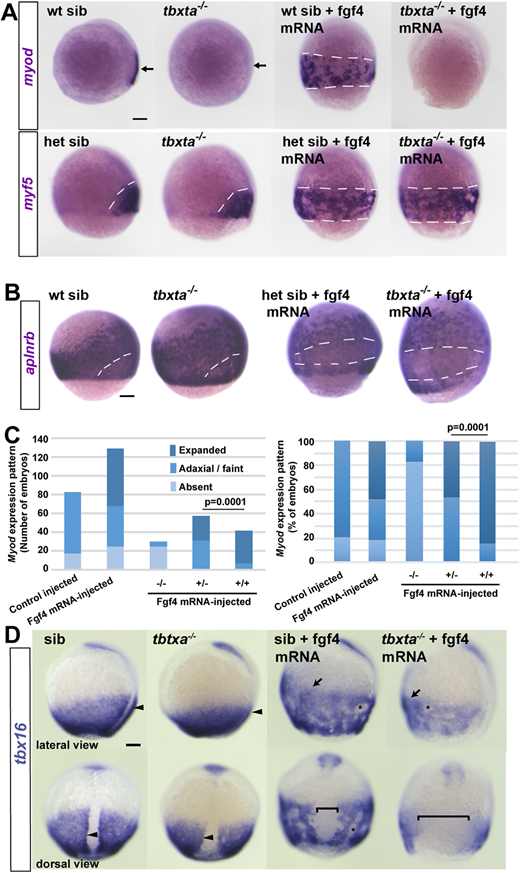Fig. 7 Embryos from a tbxta+/− incross injected with 150 pg fgf4 mRNA or control. (A) Tbtxa−/− mutants lack myod mRNA (arrows) but retain myf5 mRNA in presomitic mesoderm (white dashes). Fgf4 induced myf5 and myod mRNAs throughout the posterior mesoderm in siblings (sib; white dashes), but failed to induce myod mRNA in mutants. (B) Fgf4 suppressed aplnrb mRNA in posterior mesoderm above the germ ring (white dashes) in both tbxta−/− mutants and siblings. In A,B, individually genotyped embryos are shown in lateral view, dorsal to right. (C) Scoring of myod mRNA accumulation in response to Fgf4 in a tbxta+/− incross. Expanded: ventral expansion, generally all around germ ring as in A. Adaxial/faint: either wild-type pattern, or reduced intensity in a small proportion of mutants that was not significantly altered by Fgf4. Left: absolute number of embryos analysed from two experiments to emphasise the lack of induction in mutants (see Table S3). Right: alternative display to highlight the reduced response in heterozygotes compared with wild type (χ2 test). (D) Adaxial upregulation of tbx16 mRNA is lost in tbxta−/− mutants (arrowheads). Fgf4 upregulates tbx16 mRNA throughout ventral posterior mesoderm (arrows) and causes mesodermal cell aggregation (asterisks). tbxta−/− mutants accumulate less tbx16 mRNA than siblings and have less expression on the dorsal side (brackets). Scale bars: 100 µm.
Image
Figure Caption
Acknowledgments
This image is the copyrighted work of the attributed author or publisher, and
ZFIN has permission only to display this image to its users.
Additional permissions should be obtained from the applicable author or publisher of the image.
Full text @ Development

